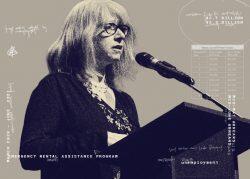Last week, the New York official struggling to distribute over $2 billion in rent relief blamed delays, in part, on the people desperate for the money: landlords.
Some $460 million pegged to tenant applications was waylaid, said Michael Hein, commissioner of the state’s Office of Temporary and Disability Assistance, at a hearing about the holdup.
“The only thing they are waiting for, primarily, is engagement by the landlord,” Hein said.
But landlords say the problem is the agency’s glitchy web portal — and that Hein is scapegoating them.
The Community Housing Improvement Program, a landlord group, said it has heard from dozens of owners who uploaded all the right documents only to receive word weeks later — from tenants — that the agency had not recorded receiving them.
Joanna Wong said she’s been down that road twice.
When the portal opened June 1, Wong and her sister, who manage a property in Brooklyn, applied immediately for themselves and their tenant.
Three weeks later, that tenant told them she had received an email from the agency that said documents from her landlord’s half of the application were missing.
“We didn’t get an email,” Wong said. “So if our tenant didn’t check hers, then we would not have known what was happening.”
Wong re-uploaded the paperwork, which seemed to resolve the hold. But weeks later, having heard nothing, she logged back in and found an incomplete flag.
This time Wong called. An agency representative told her the portal had incorrectly reported a missing W-9 and that the office would fix the mistake.
Nine out of 10 times, that has been CHIP’s experience, its executive director said.
Read more

“We’ll get on the phone with OTDA and the representative will say, ‘Oh, I’m looking at it now, the application is complete; disregard that email,” Jay Martin said.
The notifications to tenants, which don’t say which documents are missing, auto-generate whenever the system flags an issue with an application, OTDA told Martin.
An OTDA spokesperson acknowledged that in “many instances” the agency has found discrepancies between tenant and landlord applications that must be reconciled before funds can go out, but the issues are “unrelated to the functioning of the portal or technical issues.”
CHIP was also willing to chalk up the hiccup to another glitch with the program — until hearing Hein’s testimony last Tuesday.
“We’re like — wait a minute, are these people actually going to use that as proof that landlords are now not participating in the program?” said Martin. “Because we know that’s not the case.”
From his group’s vantage point, the idea that struggling landlords are ignoring free money is absurd.
There are reasons why some might not apply. The portal requests identifying information that Legal Aid Society attorney Ellen Davidson said could deter anyone with fraudulent books.
And because landlords must retain their tenant for a year after receiving relief, some with abusive or destructive renters may opt to take a financial hit instead.
But it’s unlikely that the landlords to 31,000 renters — the number of applications Hein said are awaiting owner cooperation — are bypassing relief in favor of of housing court, a costly and time-consuming option.
Martin said CHIP immediately asked OTDA for the names of landlords who allegedly did not provide information, so it could contact any of its members on the list. More than a week later, it has yet to hear back.
“They are in complete blame-everyone-but-themselves mode,” Martin said. “They’re going to scapegoat the landlords and they may even eventually start scapegoating the tenants.”
